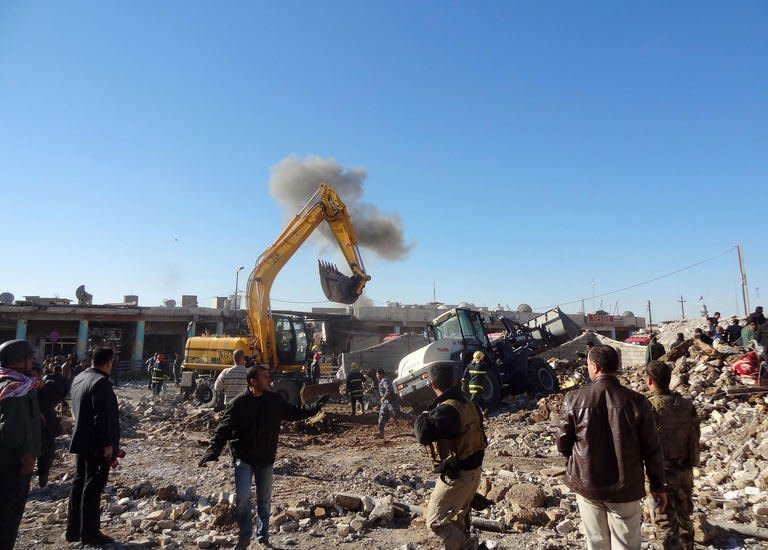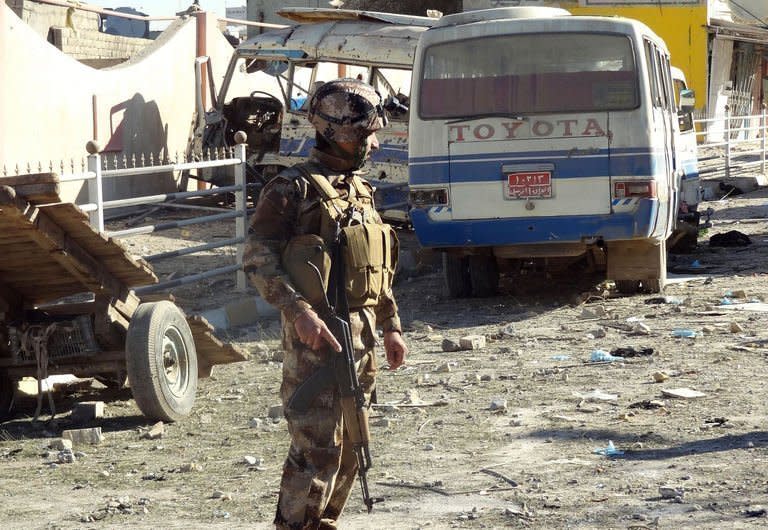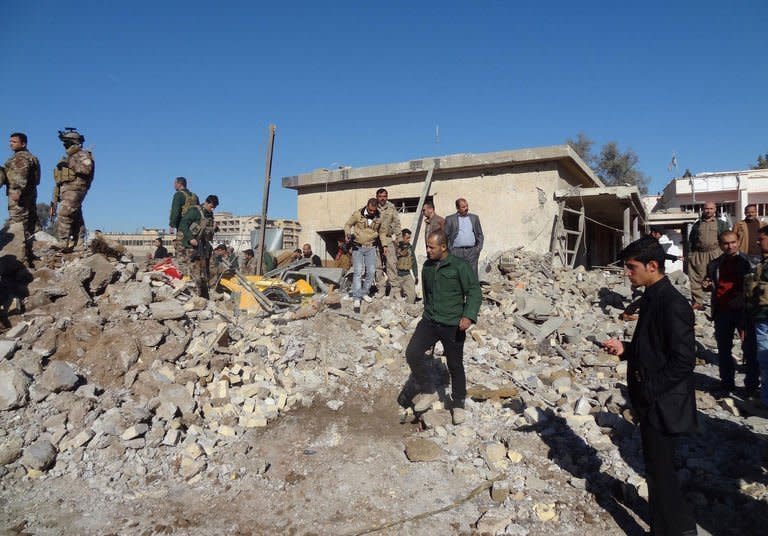Wave of Iraq attacks kills 42
Attacks in Baghdad and north Iraq killed 42 people on Wednesday as hundreds attended the funeral of a Sunni MP who died in a suicide attack a day earlier, as a political crisis grips the country. The violence, which struck mostly in disputed territory in the north and which officials also said wounded at least 245 people, was the deadliest this year. It comes as Iraq grapples with a long-running political dispute, with Prime Minister Nuri al-Maliki facing several protests in hardening opposition against his rule and calls from many of his erstwhile government partners for his ouster. No one immediately claimed responsibility for the attacks, but Sunni militants often launch waves of violence in a bid to destabilise the government and push Iraq back towards the sectarian violence that blighted it from 2005 to 2008. Wednesday's deadliest attacks struck the ethnically mixed city of Kirkuk, 240 kilometres (150 miles) north of Baghdad. Two car bombs in the same district killed at least 26 people and wounded 190, provincial health chief Sadiq Omar Rasul said. "Both explosions inflicted massive destruction," said police Brigadier General Sarhad Qader. "Our forces are still trying to remove corpses from the rubble" of the first attack. That blast was detonated by a suicide attacker during the morning rush hour and appeared to target a compound housing local offices of the Kurdistan Democratic Party (KDP) of Kurdish regional president Massud Barzani. A second car bomb parked on the side of a road nearby detonated shortly afterwards, apparently targeting a KDP official. Qader said six security force members were also killed and 10 wounded in the two blasts. Another suicide car bomb in the town of Tuz Khurmatu, also north of Baghdad, killed five people and wounded 40 others. It struck near the offices of the Patriotic Union of Kurdistan of Iraqi President Jalal Talabani. Both Kirkuk and Tuz Khurmatu lie in a tract of disputed territory in north Iraq that Kurdistan wants to incorporate into its autonomous three-province region against the wishes of the central government in Baghdad. The row is regarded by diplomats and officials as the greatest long-term threat to Iraq's stability. In Baghdad, five attacks left six people dead, officials said, while bombings and shootings in Baiji, Hawija and Tikrit, all north of the capital, killed five others. Wednesday's overall death toll was the highest since December 17, according to an AFP tally. The latest attacks come a day after the killing of a Sunni Iraqi MP in a suicide bombing west of Baghdad, with hundreds of mourners attending Ayfan al-Essawi's funeral outside the predominantly Sunni town of Fallujah on Wednesday. Essawi's coffin, covered in an Iraqi flag, was transported atop an SUV that was part of a massive convoy of dozens of vehicles. One person was wounded by a roadside bomb as the procession set off for the cemetery, despite heavy security measures. The lawmaker was a former leader of the Sahwa, a collection of Sunni tribal militias that turned against Al-Qaeda and sided with the US military from late 2006, helping to turn the tide of Iraq's bloody insurgency. Sahwa fighters are frequently targeted for attacks by Sunni militants who view them as traitors. The violence comes amid a political crisis that has pitted Maliki against several of his ministers just months ahead of key provincial elections. Weeks of anti-government demonstrations in Sunni Arab majority areas, supported by several parties that are members of Maliki's unity cabinet, have hardened opposition against Maliki, a Shiite. Violence is down across Iraq since the country's brutal sectarian war, but attacks remain common, especially in Baghdad, Kirkuk and Tuz Khurmatu.





